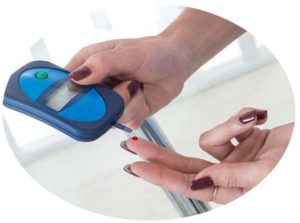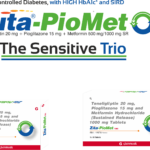Bengaluru: Novo Nordisk Education Foundation unveiled the first-year report of India Diabetes Care Index under the ‘Impact India: 1000-Day Challenge’ programme. According to the report, HbA1c level, the best recommended indicator of long-term blood sugar control reduced marginally from 8.45% to 8.39% in Bengaluru. HbA1c test gives an idea about the average level of blood sugar control for 3 months. More than 27,500 people with an average age of 55 years were part of the analysis in the city, out of which 55% were male and 45% were female.
Speaking about the report, Dr KM Prasanna Kumar, Director, Primer Academy of Medical Sciences (PAMS) said, “It is good to know that average HbA1c level in the city has dropped a bit according to the latest India Diabetes Care Index. However, we should aim to bring it further down which can only be possible if we manage diabeteseffectively. Healthy diet, exercise, medications and monitoring of blood sugar level should be done regularly in order to manage diabetes in a systematic way.”
Talking about the programme, Dr. Anil Shinde, Trustee, Novo Nordisk Education Foundation, said, “At Novo Nordisk, we have been working towards changing diabetes for nearly 100 years. With the Impact India initiative, we have set an ambitious target and hope to see India emerge as a role model in diabetes management. The “Impact India: 1000-Day Challenge” Programme was introduced to address the growing concern of uncontrolled diabetes in India.”















